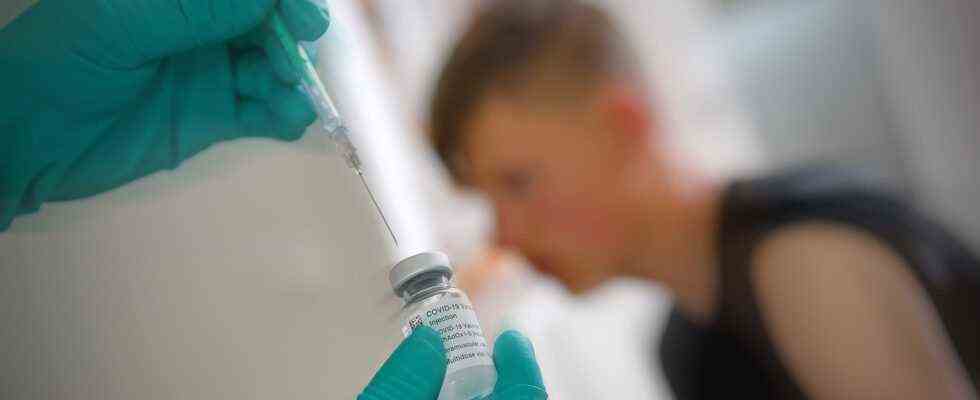Status: 07/13/2021 5:40 p.m.
In the United States, there is a low risk of nerve inflammation associated with corona vaccinations. This is now also being examined in Germany.
Guillain-Barré Syndrome (GBS) is a comparatively rare neurological disease. Inflammation of the nervous system due to an excessive autoimmune reaction. Sensory disturbances and paralysis can occur. Often starting in the legs, but also in the arms and face, paralysis can occur.
In particularly severe cases, the respiratory muscles can also be affected, and some patients have to be ventilated. However, GBS can usually be treated well, for example with immunoglobulins. Often the symptoms go away without any long-term damage.
Only a few cases so far
The US Food Monitoring and Drug Administration (FDA) is now warning of possible GBS diseases after vaccination with the SarsCoV2 vaccine from the manufacturer Johnson & Johnson. The risk is very low, it is said, and a causal connection with the vaccine has not yet been proven.
Around 13 million Americans have received the vaccine so far, and around 100 people have been diagnosed with the immune system disease. Especially in men aged 50 and older. In the future, the package insert for the vaccine will therefore contain a warning.
Checks also in Germany
In Germany, too, it is now being checked whether there should be warnings of the occurrence of the syndrome in connection with SarsCoV2 vaccinations. Because GBS cases have recently occurred more frequently in this country, such as the Paul Ehrlich Institute last week at the request of WDR and Süddeutscher Zeitung confirmed. Heaped means a little more than is naturally expected. However, this is not about the Johnson & Johnson vaccine, but primarily about the AstraZeneca vaccine.
“With regard to the occurrence of Guillain-Barré syndrome after Covid-19 vaccination, there are currently more case reports than would be statistically expected,” said a spokeswoman. This subject is currently also being “assessed and discussed in the Pharmacovigilance Risk Assessment Committee at the European Medicines Agency (EMA)”.
Death after infection
The current safety report from the Paul Ehrlich Institute states that by May 31, 24 cases of GBS after vaccination with the vaccine Vaxzevria (AstraZeneca) and two cases of a related syndrome had been reported. The first symptoms appeared up to 22 days after the vaccination, the vaccinated people were 15 women and 11 men between the ages of 34 and 79 years. Three people had to be treated in intensive care and invasively ventilated, in one case the outcome was fatal been.
In the meantime, the European Medicines Agency (EMA) has issued a recommendation that the AstraZeneca vaccine should include a warning of a risk of Guillain-Barré syndrome. In addition, data on an increased risk of nerve damage would be continuously evaluated, as a spokesman for the EU authority announced.
Manufacturer cooperates with authorities
The company Janssen, which belongs to the pharmaceutical company Johnson & Johnson and produces the Covid-19 vaccine, announced on request that it was in close contact with the authorities. The rate of GBS sufferers was only slightly increased by the vaccination compared to the normal occurrence, but the vaccine generally protects very well against hospital admissions and deaths from Covid-19.
“We strongly support raising awareness of the signs and symptoms of rare events to ensure that they can be identified quickly and treated effectively,” said a company spokeswoman.
Mechanism of infection still unknown
It has been known for some time that GBS can occur in rare cases after some vaccinations. Such a connection has been described for vaccines against shingles, hepatitis and flu. GBS occurs particularly frequently after infections with gastrointestinal or lung germs. According to Peter Berlit, Secretary General of the German Society for Neurology, it has not yet been conclusively clarified whether the Sars-CoV-2 virus can also trigger GBS.
In addition, in view of the large number of people vaccinated, it is not surprising that new side effects of the Covid-19 vaccines continue to be known. “Well more than three billion doses of this vaccine have been administered internationally,” says Christine Falk, President of the German Society for Immunology. “This means that the rarest side effects are also noticeable.”

